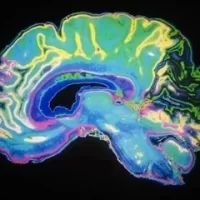Researchers from the Icahn School of Medicine at Mount Sinai have discovered that vaccination against COVID-19 is associated with a lower risk of heart attacks, strokes, and other cardiovascular problems among individuals who were infected with SARS-CoV-2, the virus that causes COVID-19, after analyzing the largest datasets in the United States.
On February 20, the American Academy of Cardiology’s journal released a research letter titled “Impact of Vaccination on Major Adverse Cardiovascular Events in Patients with COVID-19 Infection.”
The research will also be presented in a poster session at the World Congress of Cardiology and the 72nd Annual Scientific Conference of the American College of Cardiology in New Orleans, Louisiana.
It is the first study to examine both full and partial vaccination and the link to major adverse cardiac events (MACE) in the United States, confirming similar analyses performed previously using the Korean COVID-19 registry. Researchers used the National COVID Cohort Collaborative (N3C) database, the largest national comprehensive database on COVID-19. Since its inception in 2020, the N3C has continuously collected and harmonized data from electronic health records of institutions nationwide. Included in this study were 1,934,294 patients, 217,843 of whom received mRNA vaccine formulations by Pfizer-BioNTech or Moderna or viral vector technology by Johnson & Johnson. Cox proportional hazards, a statistical technique, was implemented to assess vaccination association with MACE.
To our surprise, even partial vaccination was associated with lower risk of adverse cardiovascular events,” said first study author Joy Jiang, an MD/Ph.D. candidate in the lab of Dr. Nadkarni. “Given the magnitude of SARS-CoV-2 infection worldwide, we hope our findings could help improve vaccination rates, especially in individuals with coexisting conditions.”
Further work will be necessary to elucidate the mechanisms involved from an immunological perspective and clarify the role of SARS-CoV-2 subtypes and reinfections in their relationship to the risk of MACE.












